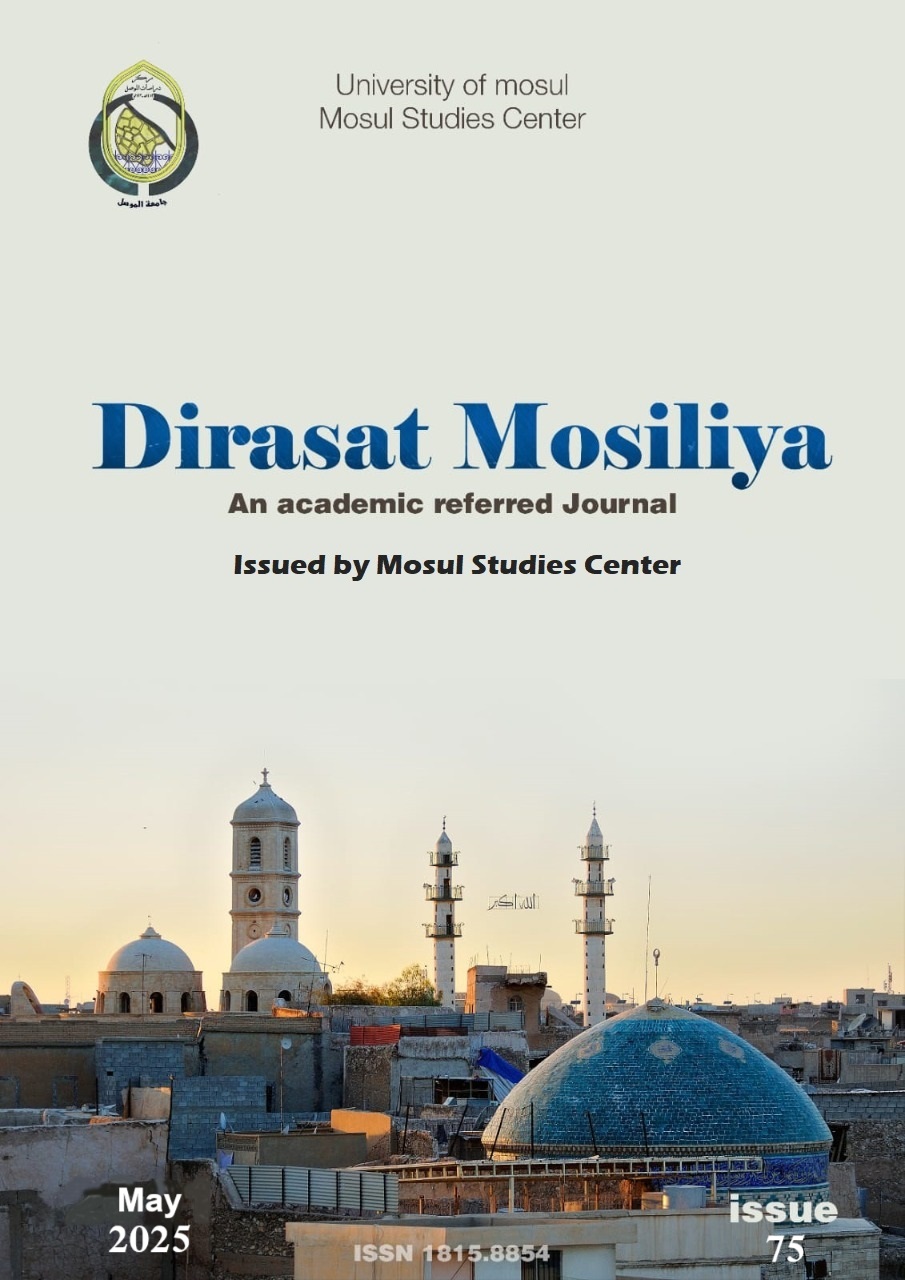Development of evaluative abilities from the age of 13-18 years in Mosul city center
Abstract
The current research aims to measure the evaluative abilities from the age 13-18 years.
Evaluative abilities mean: the various types of mental activity that aims to verify information and its results and uncover its validity in order to compare it with a specific test of information and it consists of shapes, symbols and meanings.
The research sample consisted of (897) male and female students distributed according to gender and grade. The researcher set a test to measure evaluative abilities set in the master thesis. The test in its initial form consisted of (100) items and carried out procedures (apparent validity - construction - internal consistency - standard error - and global analysis) as the researcher did by calculating the discriminatory ability of the test items, (34) items were omitted, then the consistency was calculated (re-test, midterm and Vackronbach), the highest score on the test in its final form (66) and the lowest score (zero) with a hypothesis of (33) and the results indicated that the evaluative abilities develop with age development and that there is a significant increase in the arithmetic mean for the sample individuals in one age into another with a significant sign and this confirms Gilford's hypothesis that evaluative abilities start growing after the age of 12 years.
sample members were of an average level and due to the fact that their arithmetic mean is within the intermediate level scores to test the evaluative abilities, and a statistically significant difference was found for the first and third grade in favor of the third grade, and a statistically significant difference was found between males and females in favor of (females).
A statistical significant difference between males and females for the fourth and sixth grades in favor of (females) were also found. A statistically significant difference was also found between scientific and literary in favor of scientific specialization.
The interaction between sex, grade, and specialization was not statistically significant. The researcher developed a number of recommendations, including:
1- Educators working in the General Directorate of Education should benefit from a test prepared by the researcher to reveal the evaluation capabilities of students when they are classified into the scientific and literary branch.
2- Those responsible for developing the curricula should review the mechanism used at the present time and adopt approaches that emphasize the development and development of mental capabilities, including corrective capabilities.
The researcher also made a number of proposals, including:
1- Conducting an experimental study entitled (The Impact of an Educational Program According to Guilford's Theory of Development of Evaluative Capabilities).
2- Conducting a correlational study on the relationship between evaluation capabilities and both creative and critical thinking.




